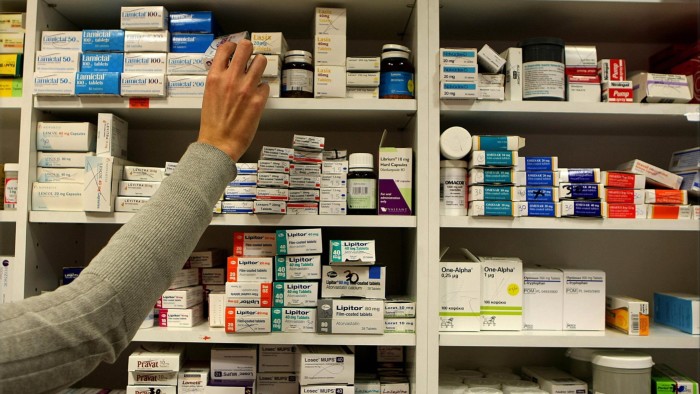Unlock the White House Watch newsletter for free
Your guide to what Trump’s second term means for Washington, business and the world
The NHS budget for medicines should not rise in line with inflation, the head of England’s drug approval body has said, despite ministers offering to increase spending to appease pharmaceutical companies and US President Donald Trump.
Sam Roberts, chief executive of the National Institute for Health and Care Excellence (Nice), said on Wednesday that the equation used to calculate how much the government spent on drugs “doesn’t increase with inflation because your pool of money doesn’t increase with inflation, it’s driven by taxes”.
“It’s not like the US or other countries where you can just increase your insurance premiums. You can’t increase tax easily,” she told the Financial Times Global Pharma and Biotech Summit.
The comments by Roberts come after officials said ministers looked set to concede to some of the drugmakers’ demands to lift the value at which a medicine is considered cost-effective enough to be made available on the NHS, partly in response to the US president’s threatened tariffs on the sector.
Roberts said that Nice, an arm’s-length body of the government, was “very sympathetic to the fact that the UK is a tough commercial environment and the global commercial environment for pharmaceuticals has changed in ways none of us fully expected 18 months ago”.
But she added that there were “only so many taxpayer pounds. If you spend more money on medicines, it means something else is forgone. It could be hip replacement, it could be a nurse.”
The government has proposed increasing the NHS’s cost-effectiveness measure for drugs by about 25 per cent in recent talks with the US, according to people familiar with the matter, after it stayed at the same level for 25 years.
Despite this concession, the industry has been lobbying for a commitment that the “quality-adjusted life year” (QALY) — which tracks the cost of a treatment for every healthy year it delivers for a patient — would not get stuck again.
Nice uses the value of a QALY when deciding whether to recommend a new drug. Its upper threshold is £30,000 per QALY.
Drugmakers, including MSD, Eli Lilly and AstraZeneca, have scrapped or paused investments in research and development in the UK in recent months, hitting out at lower drug prices compared with international peers.
Meanwhile, Trump has threatened to impose tariffs on the sector and has railed against European countries “freeloading” on American innovation while the US pays much higher drug prices.
Roberts conceded it could make sense for the government to increase the value of a QALY, without increasing it in line with inflation, by incorporating the need to promote investment into Britain in its value equation.
“We used to have a world in which . . . all we were thinking about is ‘we need to get the most health per pound spent’,” she said, but now “we’re going to optimise for a combination of most health per pound spent plus inward investment”.
Nice last year came under fire for rejecting Enhertu, a breast cancer drug developed by AstraZeneca and Daiichi, for many patients last year. Pascal Soriot, the company’s chief executive, has said the regulator wrongly categorised breast cancer as a “moderately severe” disease.
Asked about the decision, Roberts said it was “heartbreaking and terrible” but that the system for approving drugs based on cost and severity was working well.
While Enhertu would have been more likely to have been recommended under a previous system that valued medicines used at the end of life more highly, Roberts said on average the current system, which pays more for drugs for the most severe conditions, was benefiting “way more people”.
The breast cancer drug is available in Scotland, which makes separate decisions.
“End of life is not what the population of the country values,” she said.

